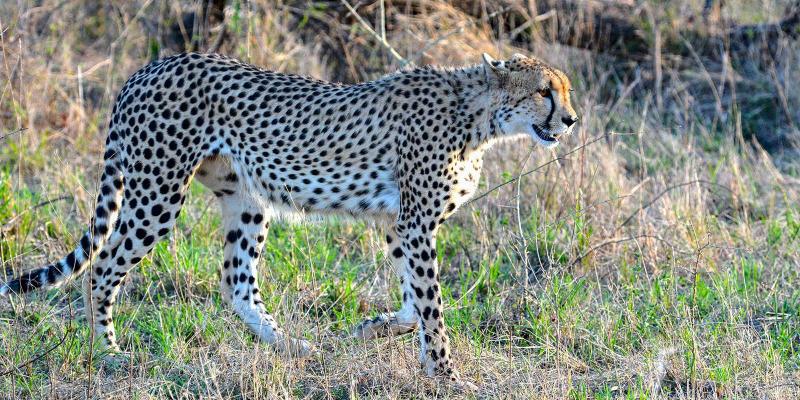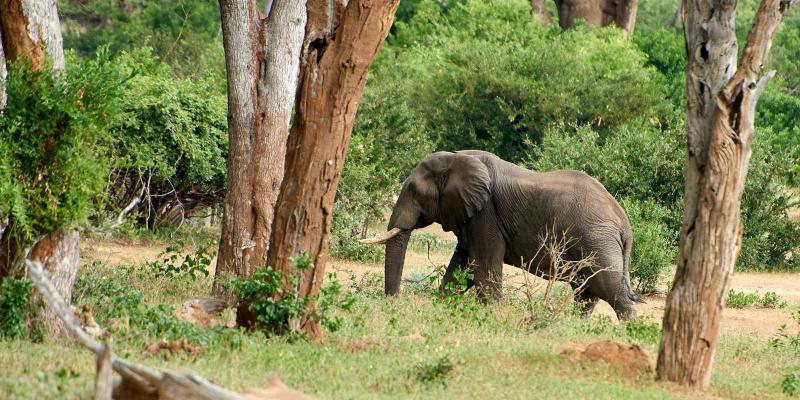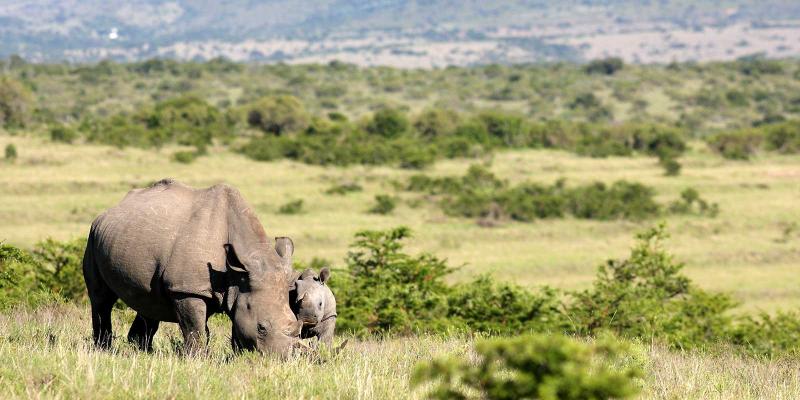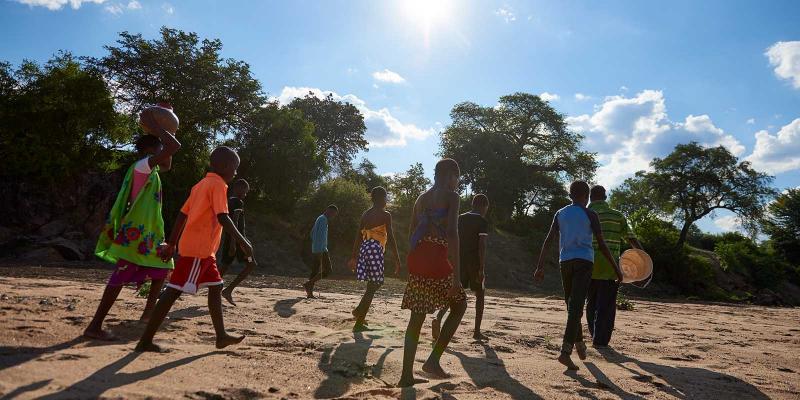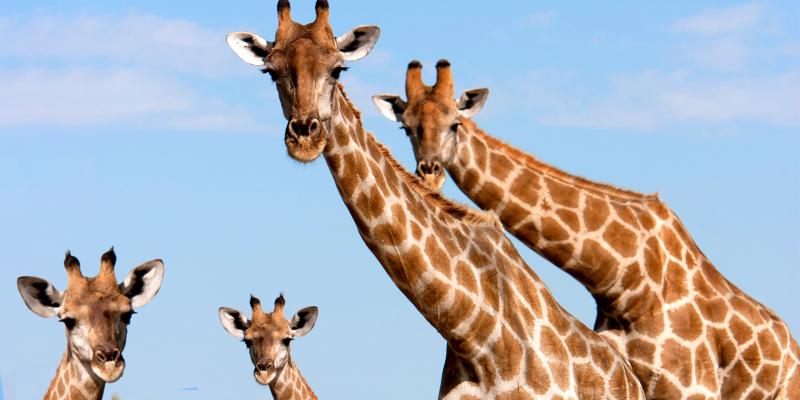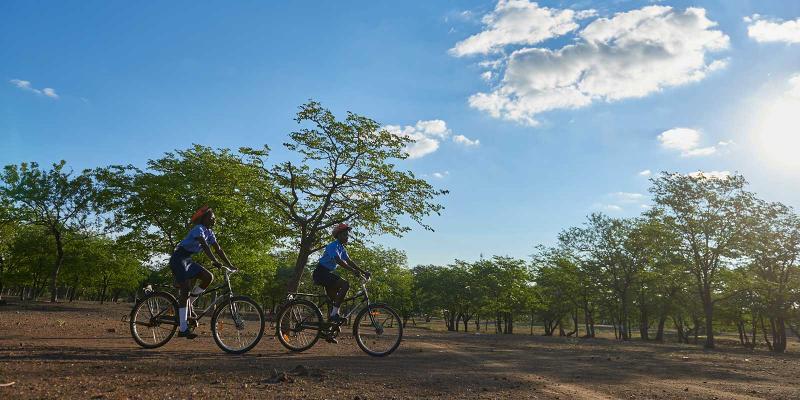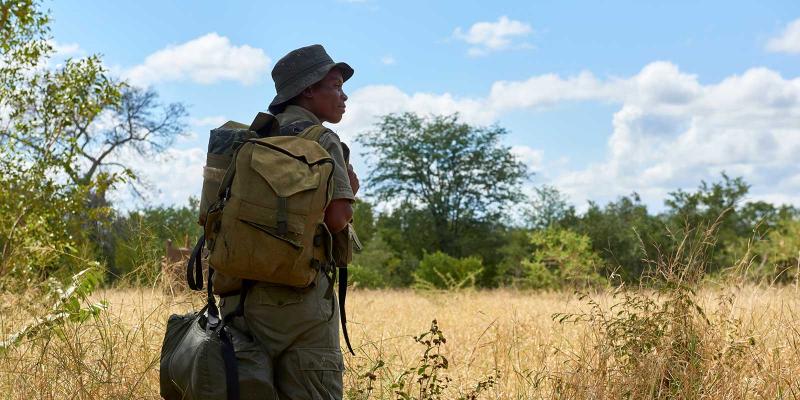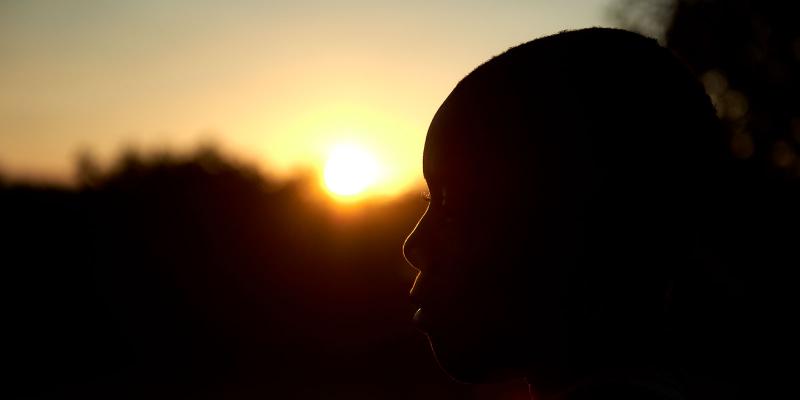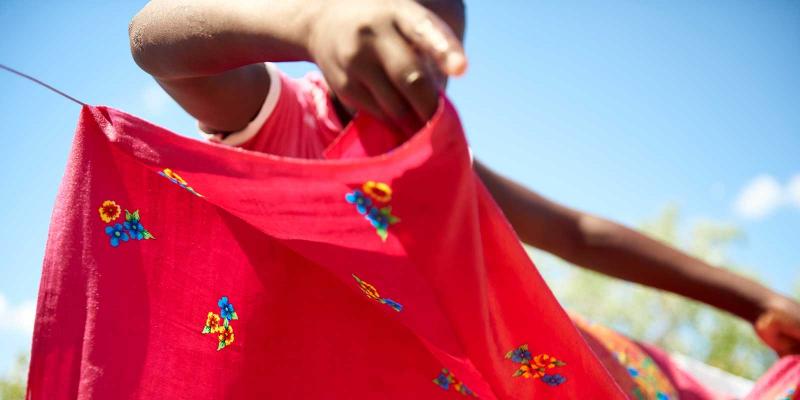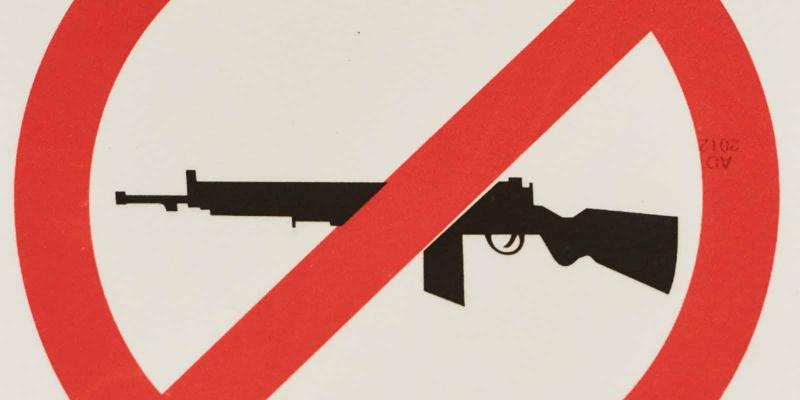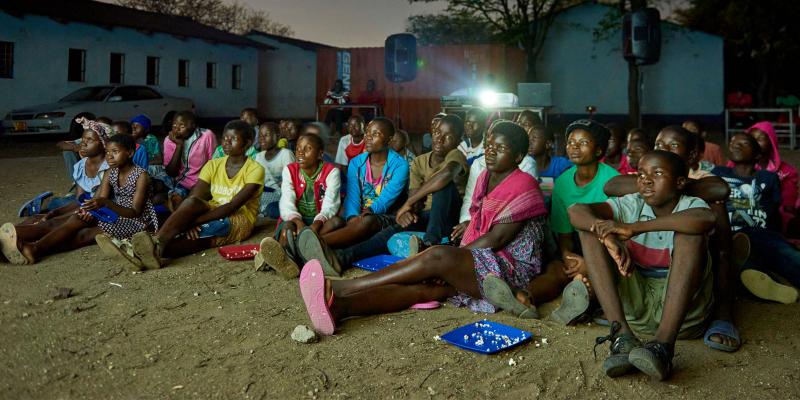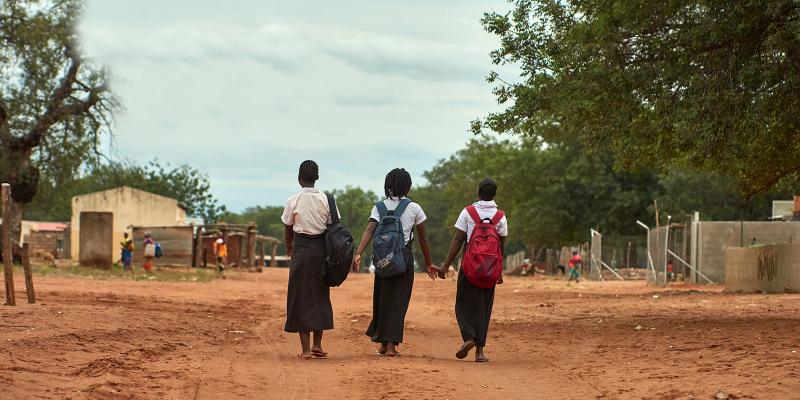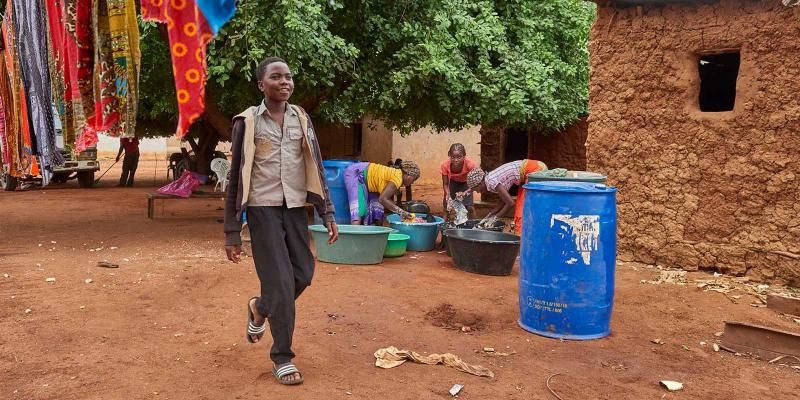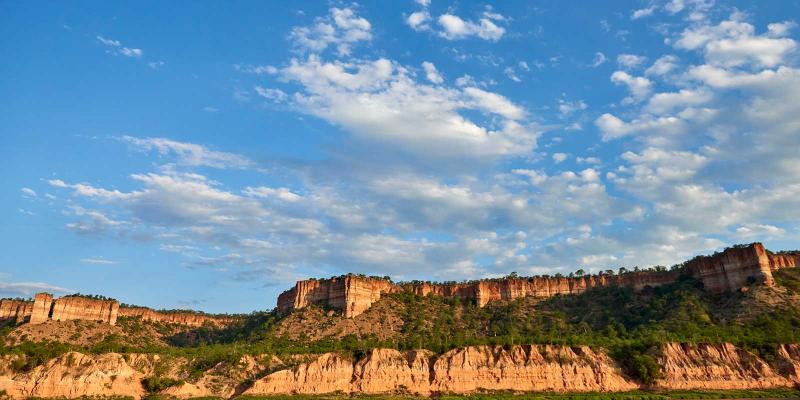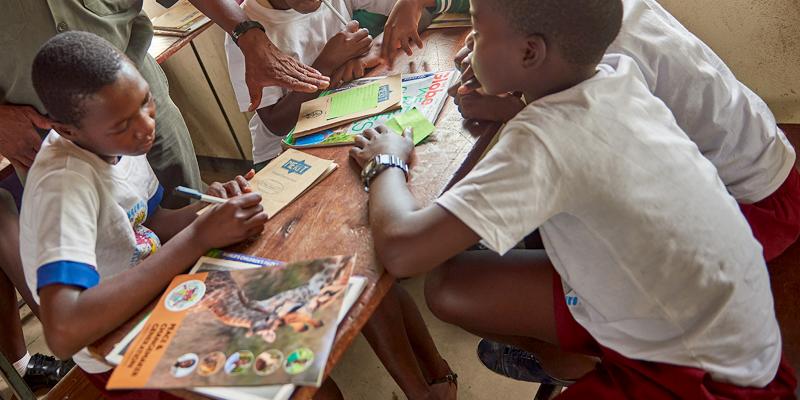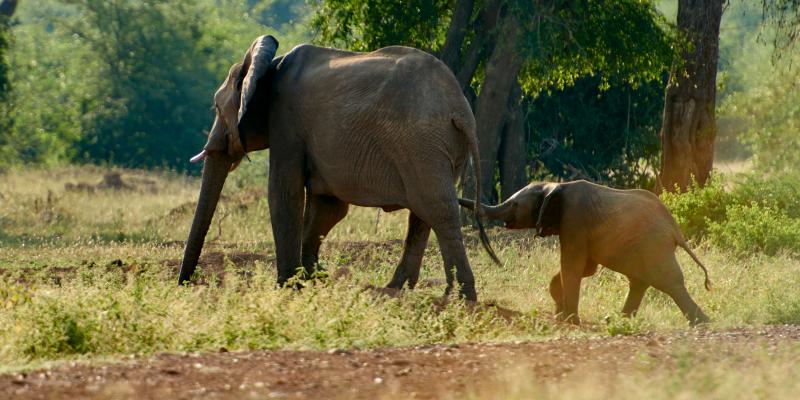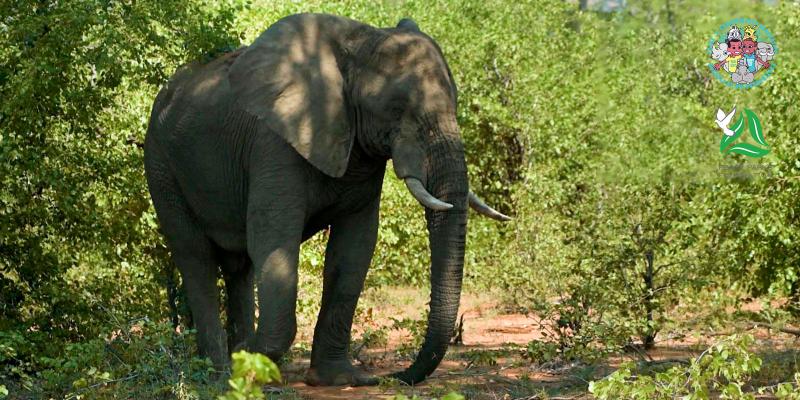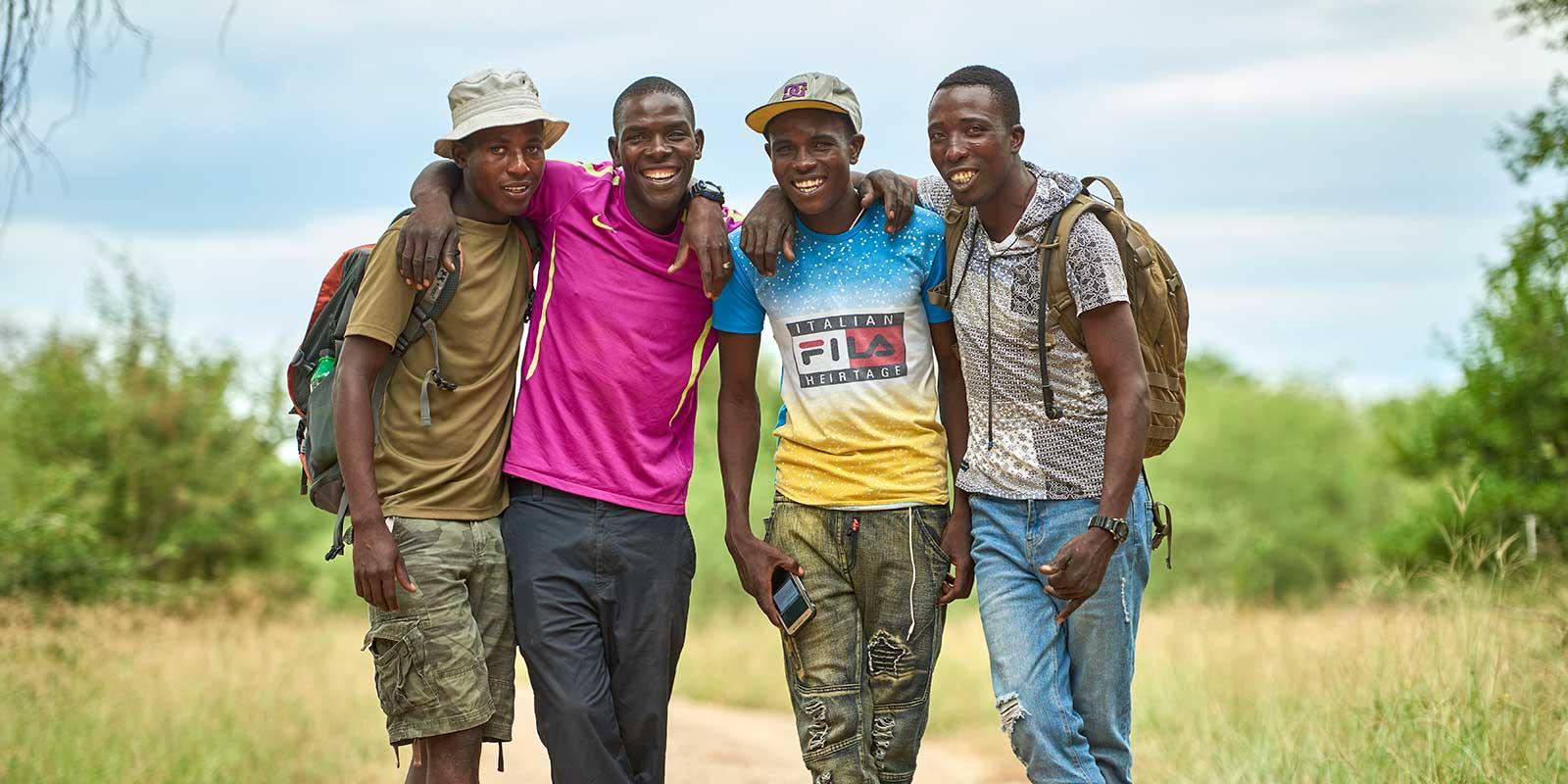
“I quit school when I was 14 and became a poacher. Now I know that it was wrong. I killed our country’s priceless natural resources and our heritage for future generations. It makes me sad to think about it. But now I’m trying to do the right thing and make up for it by protecting our wild animals and our natural environment,” says Albert Chari, who is now a ranger in Zimbabwe’s Gonarezhou National Park.
My
dad was a ranger here in
Gonarezhou and I admired
him and his smart uniforms.
I wanted to be a ranger too
when I grew up. I
grew up in the little village
of Pahlela, where I went to
school for seven years.
“When dad was growing up,
he looked after his younger
brothers and made sure they
had food and could go to
school. As a thank-you, our
uncles helped us when dad
couldn’t afford to pay for secondary school for all his 14
children. But the uncle who
was supposed to pay my
school fees went abroad to
work, which meant that I
couldn’t start school. Dad was
out in the field for several
months at that time, and he
didn’t know about this, so he
couldn’t help me. I was 14
years old then.”
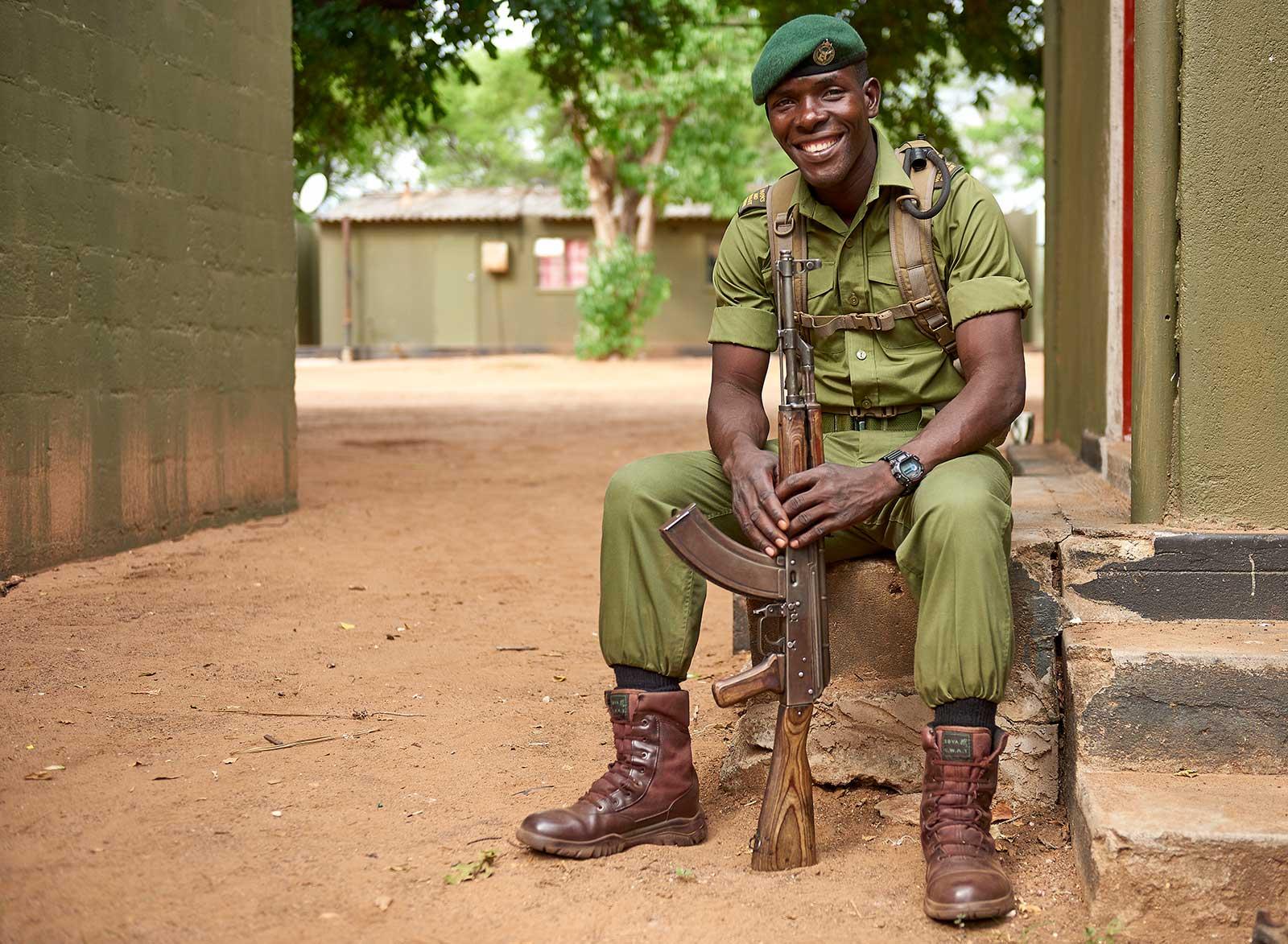
“When I’m home in the village, I always talk about the importance of protecting animals and the natural environment, and that poaching is against the law. In the future I’d like to visit schools and talk to them about my work and about wildlife conservation,” says Albert.
Boy becomes man
“I started looking after dad’s cattle with my friend Isac. We tended the cattle in the national park, where there was plenty of grazing, but also lots of wild animals. Isac bred dogs and they were always with us. The first time his dogs hunted and killed a bush-buck, it felt strange. We sorted out the kill and I dared to go home with the meat because I knew that dad was away.“Mum was delighted! When a son comes home with a kill for the family, it means that he’s no longer a little boy, he’s a man. I felt proud and happy.
“When dad came home and realised I hadn’t started school, he paid my school fee straight away. But he couldn’t afford books and a school uniform, so I still couldn’t start.
The family was too big and we couldn’t have as good a life as we wished, particularly not my mum. So although it went against my dream of becoming a ranger, I started hunting again as soon as dad had gone out into the wilderness on a new assignment.”
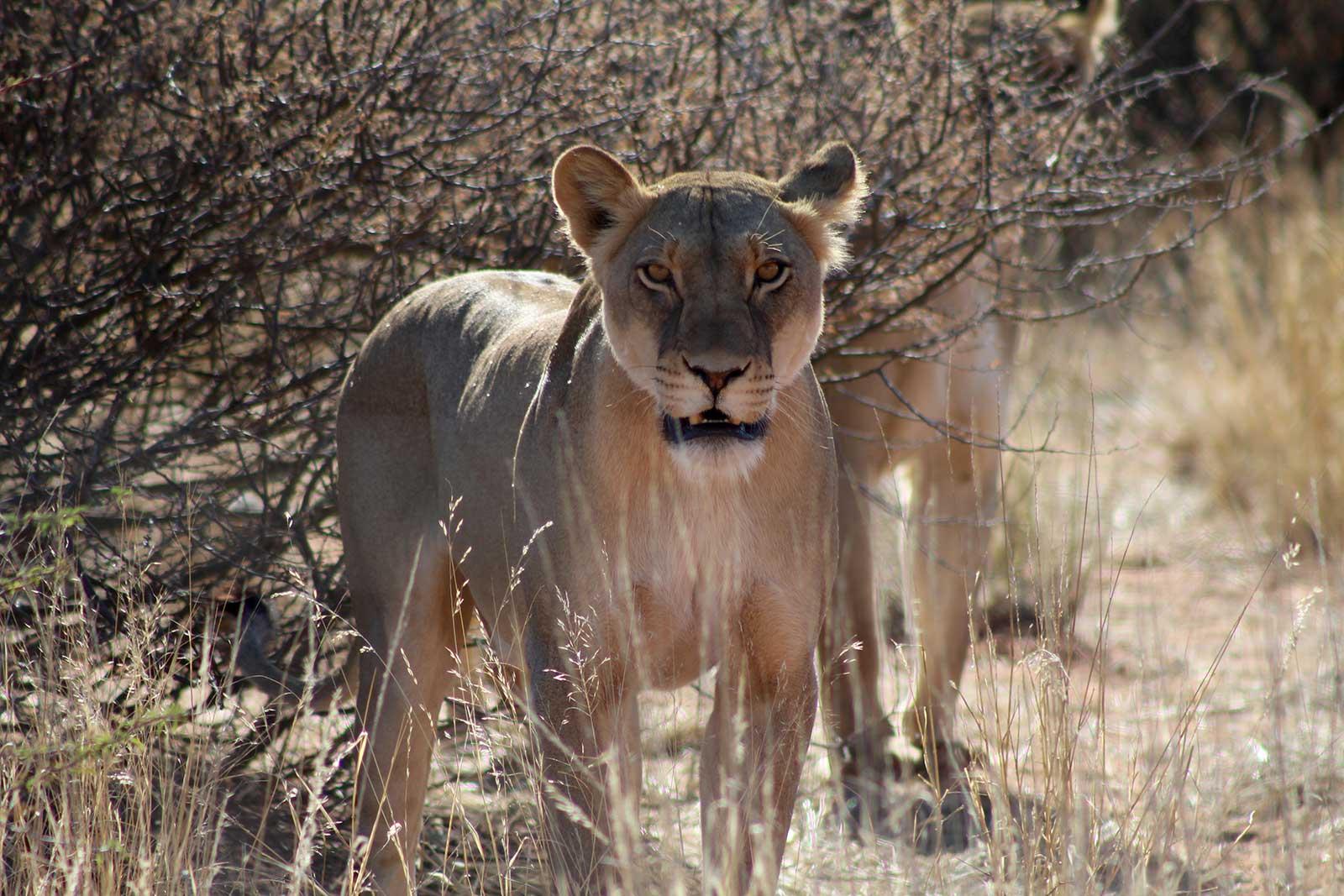
Up close with a lion
“I’ll never forget my first encounter with a lion. We were out hunting and we suddenly came across a lion’s den where a lioness was feeding her cubs. She got up on her hind legs and roared at us. We stood still and started roaring back, but the lioness didn’t give up. Then we started slowly walking backwards while shouting. We walked backwards for over a kilometre with the lioness roughly two metres away from us the whole way! I had to learn a lot about animals and nature to be a successful hunter. I now use a lot of that knowledge today as a ranger,” explains Albert.Hunting with dogs
“I started breeding dogs, just like Isac. We always had at least four dogs with us in the park. But because all the dogs in the neighbourhood knew me and came when I whistled, we often had 20 dogs with us on the hunt! I used a spear and bow.“We got up early, left the cattle to graze and went further into the park to hunt. We brought home the kill, which our mums started cooking while we went back to fetch the cattle. We hunted four to five times a week, and I really enjoyed that life. It provided food for our families and everyone who let their dogs come with us.
Big hunters
“We became the big hunters of the village, and I felt very proud! Sometimes I sold meat and I remember buying my very first pair of shoes with the money I’d earned from hunting. Before that, I’d gone barefoot my whole life. “I knew that what we were doing was illegal and that we could get into trouble. But I was a really fast runner, so I was convinced that the rangers would never be able to catch me. Although they had weapons, we learned that they only ever fired warning shots in the air, never at us. We also learned to whistle in a special way, which meant the dogs ran in front of us and we fol- lowed closely behind the pack. That way the rangers never dared shoot our dogs because then they risked shooting us.”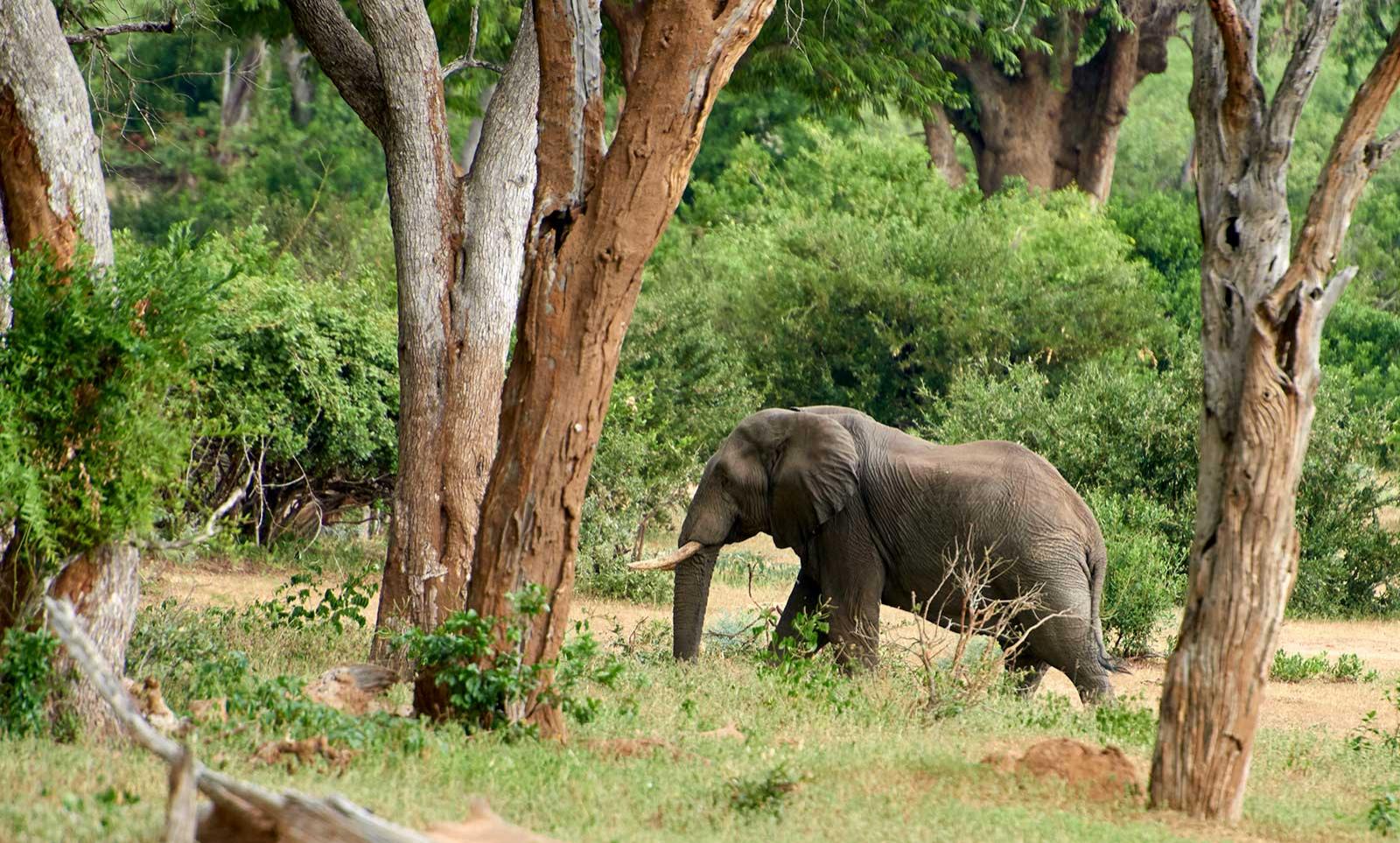
Dad furious
“I hid my hunting from dad and we never hunted when he was home. But in the end the rumours about me and Isac reached dad.I’ll never forget that night. Dad was furious and hauled me out of bed. He hit me harder than I thought possible. Then he dragged me round to Isac’s house, where he locked us in and carried on hitting us until we finally admitted that the rumours he’d heard were true. We were poachers."
“Dad was incredibly disappointed and gave us our first lesson in wildlife and conservation. He said that animals were our natural heritage and that they belonged to everyone. And that if we didn’t protect the animals, future generations would only be able to experience them by looking at pictures in books. He also explained that it was the salary from his job protecting animals that provided the family with money for food and everything else that we needed. If the animals disappeared, he would lose his job and our lives would be harder.”
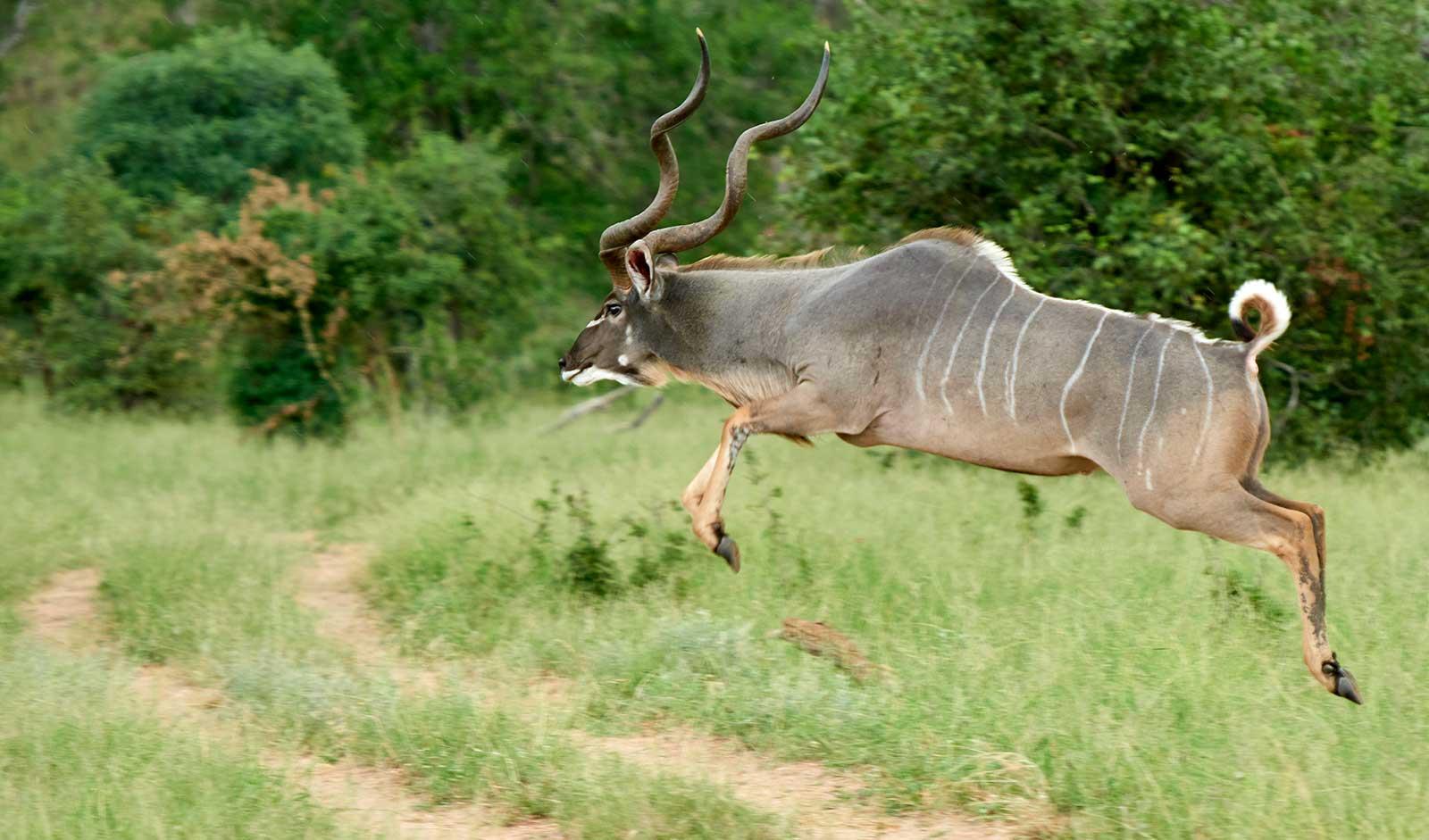
Carried on hunting
“I felt put out at having been so knocked about by dad. I thought, why should I listen to him after that? We defied dad and carried on hunting. We were able to because dad was moved to Hwange National Park.“When my uncle came home and I got the chance to start school again, I still chose hunting. I felt like I didn’t need school anymore.
“I got married, and after a few years, my wife thought that I really should stop poaching. She said that hunting would never be able to build a future for our family; that we could no longer live off something that was illegal and should instead be doing something that was right. It went so far that she threw the meat down the latrine, she was that angry.”
Elephants killed
“We’ve lost one elephant in the park so far in 2019, but the number of elephants that are being killed is steadily falling. In 2016, around 40 elephants were killed. The figure for 2017 was roughly 20, and for 2018 it was 10. The poachers know that we have much better security in the park now, with over 150 rangers working here,” explains Albert.Poachers in Gonarezhou
“Poachers can be divided into two groups. One group consists of villagers from this area who hunt for the food and to sell the meat. They hunt buffalo, zebra, impala, and waterbucks, and mainly use dogs and snares for hunting, just like I did. Poachers in the other group mostly come here over the border from Mozambique with heavy weapons and hunt elephants for their tusks. We get this kind of hunters here at least once a month. We track and pursue the poachers and put them in prison. We never shoot to kill, but sometimes we do unfortunately have to shoot to wound these criminals to defend ourselves and to be able to arrest them. It happened just last month,” says Albert.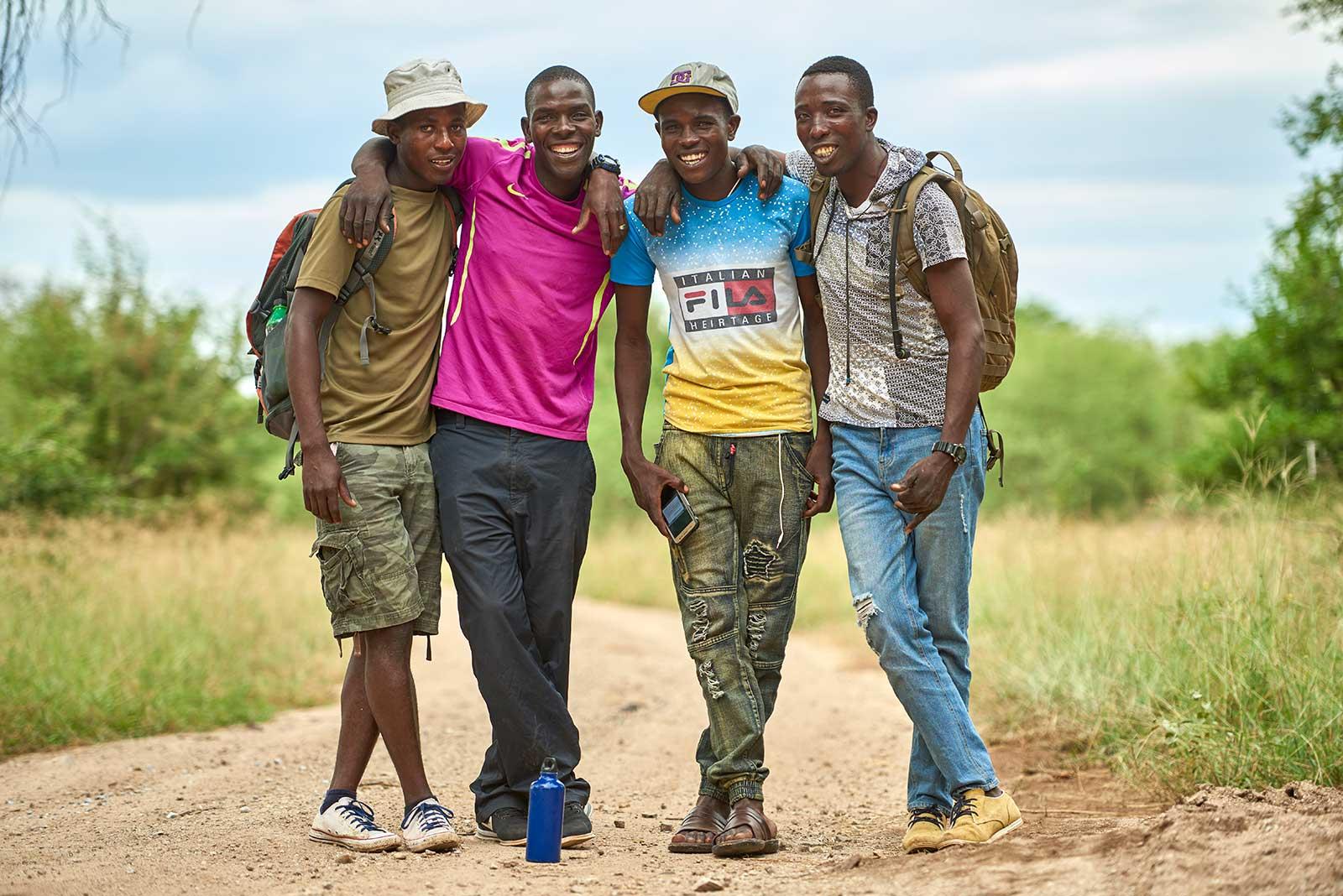
This is Albert with his brothers, who have also chosen to be rangers. From left to right: Shepard, 25, Albert, 33, Tapiwa, 24 and Mike, 31.
New heroes
“My old hunting friend Isac and four of my younger brothers are also rangers now. They were probably inspired by me, and that makes me really happy and proud. Boys in the village aged 10–12 also want to be like us. They see how respected we are. Actually I think it’s us who are the heroes today, not the poachers. Young boys even report wildlife crimes to us, so they are already involved in this important work!” says Albert.A ranger at last
“My wife got me thinking about what dad had told us about wildlife conservation. When Gonarezhou was looking for new rangers, I decided to apply. There were 379 of us who applied for the training. I won the initial ten-kilometre run. But it wasn’t until after the big interview, with questions about animals and nature that I was accepted onto the course. I knew it all. When they asked how I knew so much, I was honest and told them that I had been a poacher and been among wild animals for over ten years. I thought they would refuse to let me start the course, but they wanted to have someone who understood how poachers think and where they go. They wanted me, and I was so proud and happy! After all, this had been my dream since I was a boy and saw dad’s smart uniform.”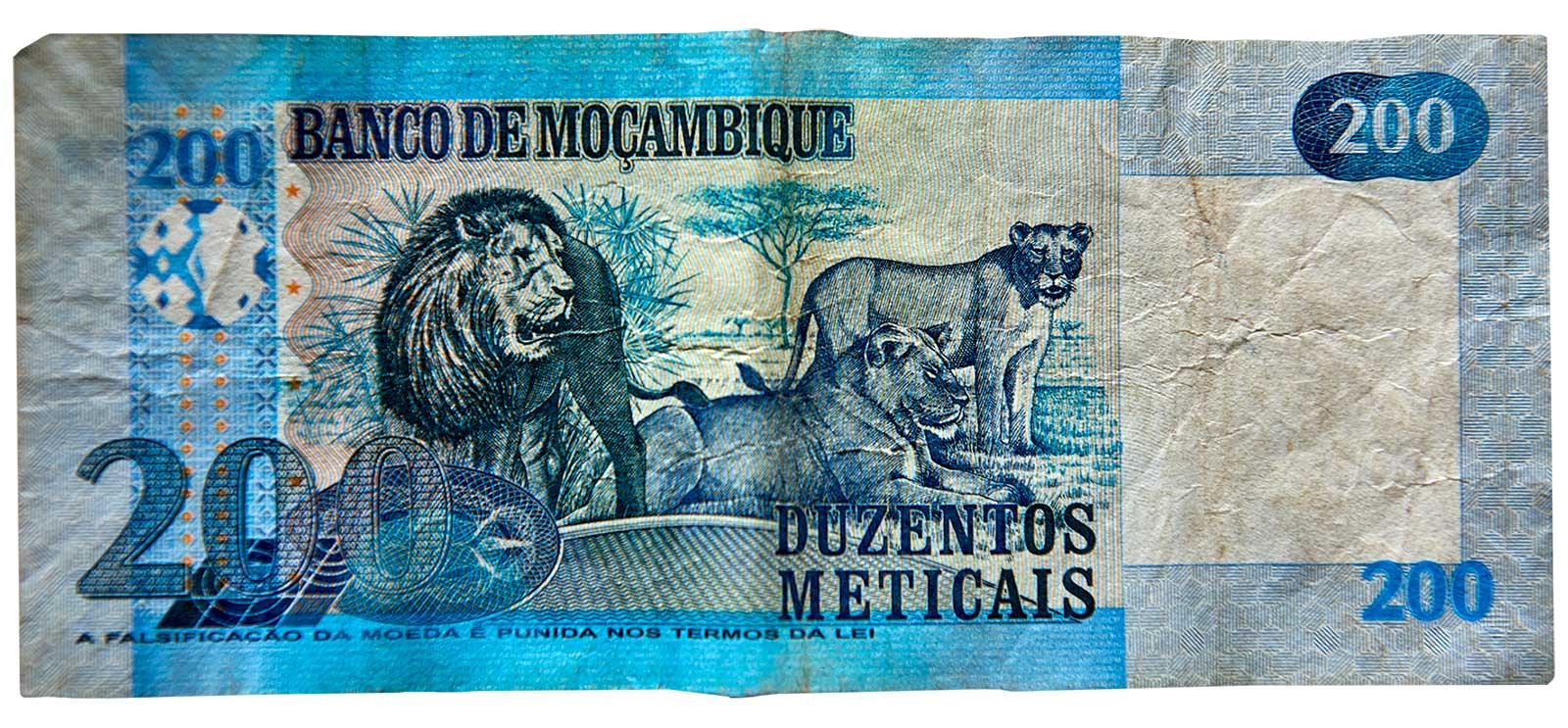
A team of hunters is often made up of four people, and each hunter in the team can get 800,000 meticais (USD 13,000) for a single rhino horn.
Back to school!
“It feels great to be able to tell
my two daughters that I’m a
ranger protecting wild animals and the natural environment, not a criminal killing
and destroying things. I feel
really great now, but just
imagine if I’d stayed at school,
what a difference it would
have made! I would have been
able to understand English
better and it would have made
it easier to get through the
training to be a ranger. Both
for understanding the course
books and instructions. I
really regret quitting school.
To all boys who have quit
school and are now poaching,
I’ve just got one thing to say:
You have to go back to school!
Get an education so that you
can look after yourselves and
your families in a way to be
proud of when you’re older.”
Ranger training includes:
– Knowledge of animals and the natural environment.– Weapons training.
– Tracking and reconnaissance.
– Ambushing and other military techniques.
Related stories
Långgatan 13, 647 30, Mariefred, Sweden
Phone: +46-159-129 00 • info@worldschildrensprize.org
© 2020 World’s Children’s Prize Foundation. All rights reserved. WORLD'S CHILDREN'S PRIZE®, the Foundation's logo, WORLD'S CHILDREN'S PRIZE FOR THE RIGHTS OF THE CHILD®, WORLD'S CHILDREN'S PARLIAMENT®, WORLD'S CHILDREN'S OMBUDSMAN®, WORLD'S CHILDREN'S PRESS CONFERENCE® and YOU ME EQUAL RIGHTS are service marks of the Foundation.



